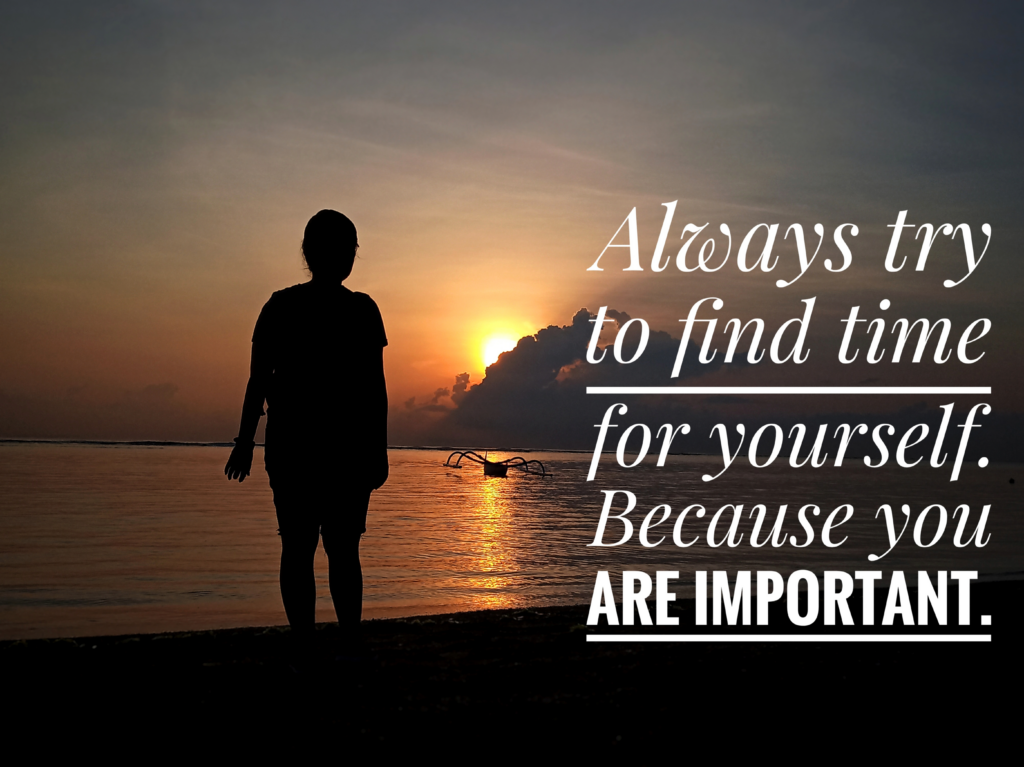Recovery is a deeply personal, unique, and transformative process. Whether you are in recovery from a substance use disorder, eating disorder, or other mental health condition, the journey often involves rediscovering your sense of self. It is about finding your way back to a place of peace, and to do that, self-acceptance is an important part of that.
Self-acceptance is part of the foundation upon which healing can truly begin. It is about embracing all parts of who you are and accepting where you are on your journey without judgment. This is not always easy, especially when the road to recovery feels overwhelming at times. Self-acceptance, however, can make the process of healing not only easier but also more hope-inducing. Here is why self-acceptance is so important and how you can nurture it.
- The Power of Letting Go of Perfection
- The idea of perfection can weigh heavily on any of us – and especially those in recovery. As a culture, sometimes we feel or believe that to truly heal or recover, we must be flawless—our progress must be quick, smooth, and free of any mistakes. The truth is, recovery is not linear, and perfection is not the goal. Rather than striving for an unrealistic version of yourself or expectation of what recovery must look like for you or those around you, focus on progress over perfection. You might stumble. You might have setbacks. Each of those things are normal for those in recovery and those who are not in recovery. However, each step counts, and challenges can serve as lessons that propel you forward into an even deeper understanding of who you are and your recovery journey. It can build a great sense of self and resilience. Embrace the messy parts of recovery, knowing they are just as much a part of your growth as your successes. When you let go of perfection, you open yourself up to embracing who you truly are—imperfections and all. You start to see that healing does not mean becoming perfect; it means accepting yourself along the way and all forms of yourself.
- Accepting the Present Moment
- It is easy to become fixated on what went wrong in the past or to anxiously anticipate the future. However, self-acceptance often begins in the present moment. Recovery may come with a mix of emotions, some regrets, and even uncertainties, but grounding yourself in the here and now can offer relief, calmness, and grounding. To begin cultivating self-acceptance, make an intentional effort to pause and breathe. Reflect on how far you have come, even if the steps seem small, and celebrate all accomplishments and victories – even the tough learning experiences along the way. Celebrate where you are today. You are exactly where you need to be right now, and this moment is an important part of your healing and recovery journey. Letting go of the need to change your past or control your future allows you to focus on your growth today. Each moment is a new opportunity to accept yourself fully, no matter what you have been through, and to take away something beautiful in each day.
- Self-Awareness: The First Step to Growth
- To be brief, self-awareness is the process of understanding your thoughts, feelings, and behaviors. This is essential to self-acceptance because it can allow you to know yourself on a deeper level. Being reflective with yourself—about your challenges, your progress, your accomplishments, and your setbacks—can be a powerful tool in the recovery journey. Acknowledge your many great strengths. Reflect on what you have overcome so far. Identify the areas where you still need growth, but approach each of these areas with kindness rather than self-criticism. Becoming self-aware is not about judgment; it is about being honest with yourself and using that awareness as a catalyst for learning and growth.
- Cultivating Self-Compassion
- In recovery, it is easy to fall into patterns of negative self-talk or to feel guilty about past mistakes. Self-criticism can often accompany the journey, but self-compassion and self-forgiveness is the antidote. Treat yourself with the same care and understanding that you would give a close friend who is going through a challenging time. Whenever you make a mistake or face a setback, ask yourself: How would I speak to someone I love in this moment? Would I condemn them, or would I offer kindness and encouragement? By practicing this compassionate inner dialogue, you will begin to shift your mindset and embrace your journey with grace. Remember, self-compassion is not about excusing maladaptive behavior(s) —it is about recognizing your humanity and treating yourself with love and respect as you work through difficult times. You deserve the same understanding and patience that you would extend to others.
- Surround Yourself with Positive Influences
- The people around you can significantly impact your self-acceptance. When you are surrounded by negativity or judgment, it can be hard to see your worth. But when you are in the company of those who uplift and support you, self-acceptance and hope becomes easier. Seek out relationships with people who genuinely understand and validate your journey and offer encouragement without judgment. Whether it is through support groups, therapy, or trusted friends and family, connecting with people who accept you for who you are can help reinforce your own sense of worth. Consider joining a community that supports self-acceptance and personal growth, whether online or in person. These groups can offer both support and accountability as you continue your recovery.
- The Role of Mindfulness and Meditation
- Mindfulness practices, such as meditation and deep breathing, are incredibly effective tools for fostering self-acceptance. So much so that Integrated Wellbeing Consulting often creates mindfulness and breathing tools for the community to use to help adopt these behaviors as part of their daily routine. When we are overwhelmed, it can be easy to get lost in negative thought patterns – commonly referred to as automatic negative thoughts. Mindfulness helps us return to the present moment, acknowledge our feelings, and embrace them without judgment. Incorporating mindfulness practices into your daily routine can help reduce stress, increase emotional awareness, improve our overall wellbeing, and develop a healthier relationship with yourself. Start with just a few minutes a day—breathe deeply, observe your thoughts, and give yourself permission to simply be. You can visit the Integrated Wellbeing Consulting YouTube page to find a wealth of breathing activities to try. Through meditation and mindfulness, you can cultivate a gentle and nonjudgmental awareness that nurtures self-acceptance over time.
- Be Patient with Yourself
- Speaking of things happening over time, healing is a process, and self-acceptance takes time. It is important to be patient with yourself and to recognize that setbacks are not signs of “failure” but opportunities for growth. The key is to trust the journey you are on and to trust yourself. Embrace each moment of growth, and remember that you are worthy of the time and care you are investing in yourself. Celebrate each day that you choose to continue on your recovery path, no matter how small the progress may seem in the moment. Our best looks different every day, and every day that you show up for yourself is exactly that – your best.
- Set Boundaries to Protect Your Wellbeing
- As you navigate recovery, setting healthy boundaries is imperative. Boundaries help protect your mental and emotional space, allowing you to prioritize your wellbeing without feeling guilty – or at least minimizing it. By setting boundaries, you are showing yourself respect and demonstrating that your needs matter. Setting boundaries could mean saying “no” to situations or people that no longer serve you, making time for rest, or carving out moments for self-care. Boundaries are an essential aspect of self-acceptance because they reinforce the idea that you deserve respect, care, and space to grow.

Final Thoughts from Integrated Wellbeing Consulting
Self-acceptance is not about being perfect. It is about honoring who you are in each moment of your recovery journey. It is about learning to treat yourself with kindness, accepting all parts of yourself, and knowing that every step you take is part of your growth.
As you continue your recovery, remember that you are worthy of acceptance, just as you are. Let go of the need for perfection and embrace your true self. Healing is not about becoming someone else—it is about learning to love and accept the person you have always been.
Recovery is a long road, it is a journey rather than a destination. but with patience, compassion, and self-acceptance, you will find the strength to continue moving forward. You will find the strength and courage that is already within you.
Additional Resources
- www.recoveryiwc.org
- Integrated Wellbeing Consulting – YouTube
- Recovery Journal and Activity Workbook: https://a.co/d/ijRjtEN
- Real Life Unplugged Podcast | Integrated Wellbeing
Published January 8, 2025. By Katherine Melton, MPH, MCHES; Owner of Integrated Wellbeing Consulting. www.integratedwellbeingconsulting.org/.
